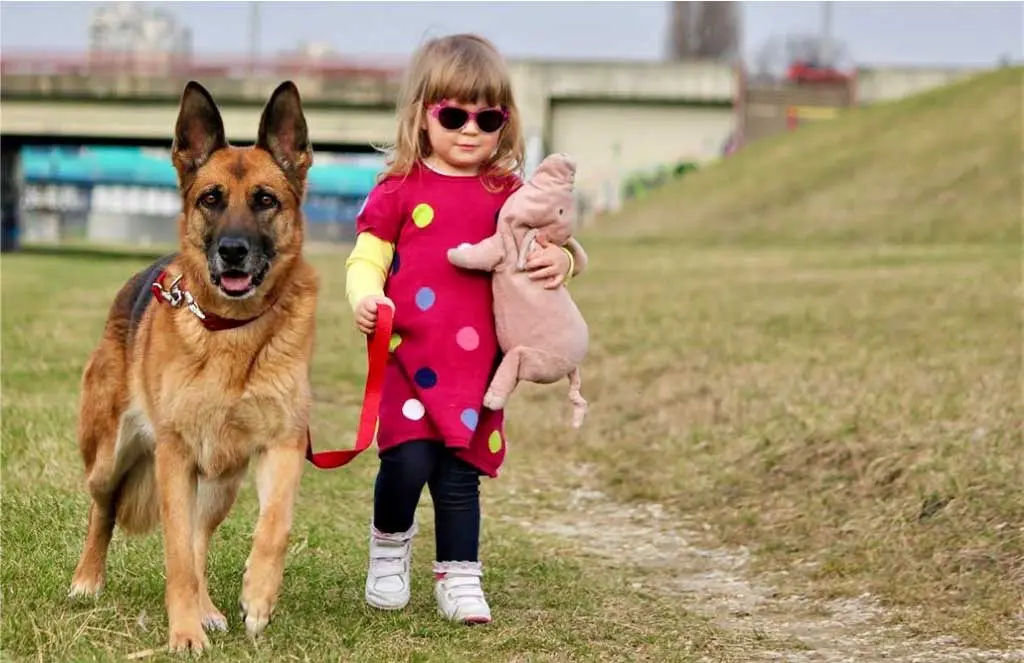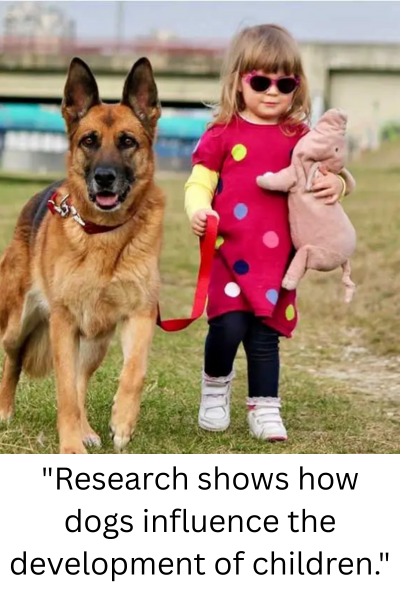In today’s article, we’ll explore how having a dog in the household can positively impact the emotional and social development of children.
Research conducted by experts from the Telethon Kids Institute and the University of Western Australia has shown that children growing up with dogs tend to develop better social skills and emotional intelligence compared to those from dog-free households.
The study, which included data from over 16,400 households, found some surprising results.

Children living in households with dogs had a 23% lower chance of developing difficulties in expressing and recognizing emotions, as well as in social interactions, compared to those from homes without dogs. Furthermore, the presence of dogs was also linked to a 30% lower likelihood of antisocial behavior in children.
- Interestingly, the study showed that children who actively participated in taking care of the family dog, such as walking and playing with them, exhibited even better results. Those who walked their dog regularly had a 36% lower chance of experiencing poor social and emotional development compared to those who walked their dogs less frequently. Additionally, children who played with their dogs three or more times a week were 74% more likely to display caring and thoughtful behavior compared to those who played with their dogs less often.
Professor Hayley Christian, the author of the study, highlighted the significance of these findings, noting that having a dog in the household is associated with a wide range of positive behaviors and emotions in children. The research provides valuable insight into the potential benefits of dog ownership in the context of children’s social and emotional growth. It also suggests that further research should explore the underlying mechanisms that contribute to these positive effects.

This study emphasizes the importance of pets in the development of children, not just as companions but as partners in their emotional and social learning. The presence of a dog in the family can be a crucial factor in nurturing empathy, responsibility, and emotional intelligence in young children
- Professor Hayley Christian, the lead researcher, emphasized the significance of these findings, noting that a dog’s presence in the home correlates with many positive behaviors and emotions in children. The study sheds light on the potential benefits of dog ownership in fostering social and emotional growth in young children. It also suggests that further research should delve deeper into the mechanisms behind these positive effects.

The research provides valuable insight into the potential benefits of dog ownership in the context of children’s social and emotional growth. It also suggests that further research should explore the underlying mechanisms that contribute to these positive effects.
- In conclusion, this study highlights the importance of pets, particularly dogs, in children’s development. They serve not only as loyal companions but also as essential partners in teaching empathy, responsibility, and emotional intelligence. A dog in the household can play a pivotal role in helping children grow into emotionally intelligent and socially responsible individuals.

















